Abstract
In an analysis of blood lead and haemoglobin estimations from 655 lead workers, there was no indication of any change in the haemoglobin until the blood lead exceeded 110 μg./100 ml.; the slight fall at higher levels of blood lead was not significant at the 5% level of confidence.
Sixty-seven men who had blood leads greater than 90 μg./100 ml. were examined clinically. One had a low haemoglobin but none had symptoms or signs that were likely to be due to lead absorption. A further 18 men had haemoglobins of 89% (13 g./100 ml.) or less. None was thought to be low due to lead absorption.
The absence of symptoms, signs, and low haemoglobins in association with relatively high blood leads is unlikely to be due to errors in blood lead or haemoglobin estimation. Alternative possibilities are that there were no susceptible workers among those studied; or that the stable conditions of exposure in this population allowed the development of relatively high blood leads without other evidence of high lead absorption.
When the haemoglobin is abnormal, blood lead observations may be more meaningful if a correction factor, approximately equal to [Formula: see text] is used.
It is concluded that in a population where sophisticated lead control is practised no purpose is served by estimating haemoglobins in all lead workers every three months, but only in those whose blood lead is likely to be in excess of 110 μg./100 ml. It may also be of value in the first year of exposure to detect susceptible workers.
Full text
PDF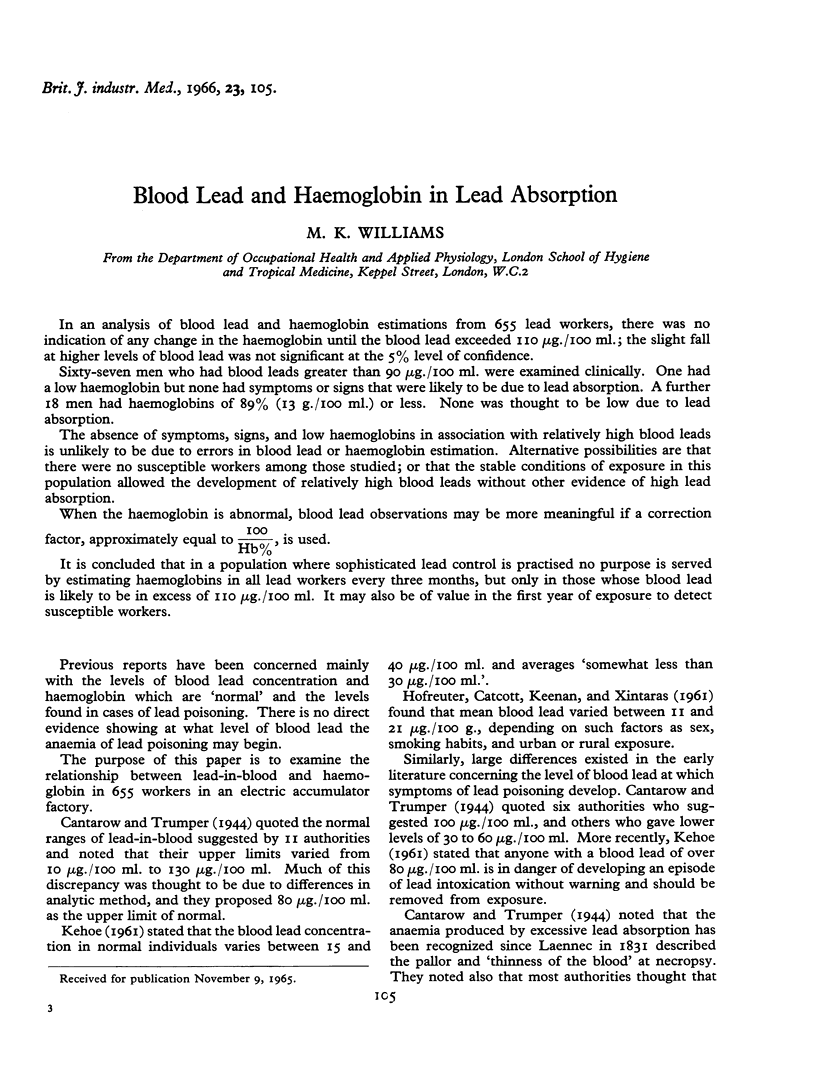
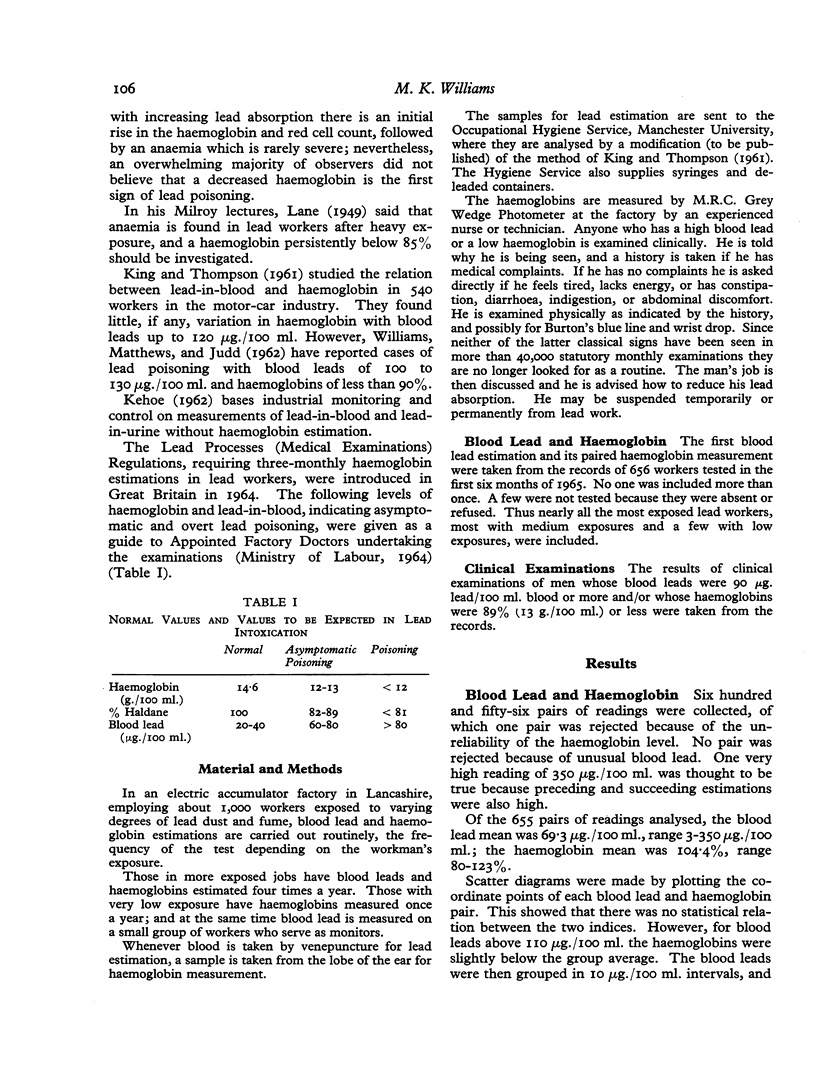
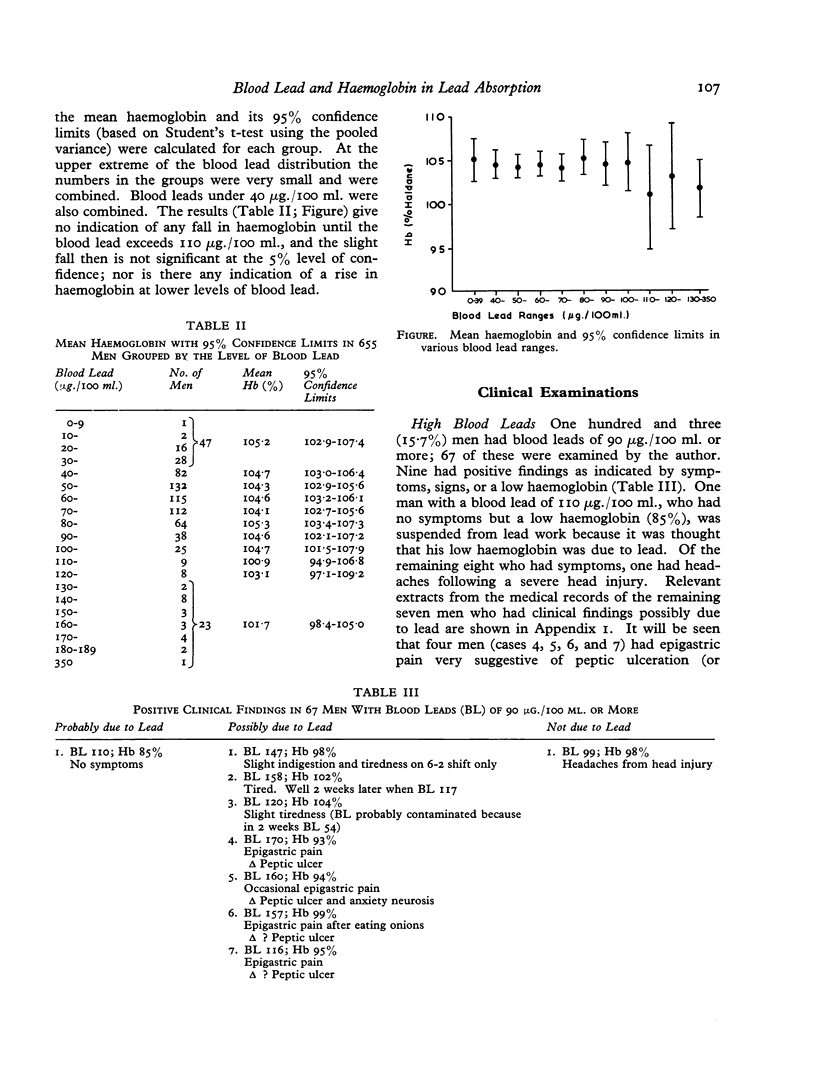
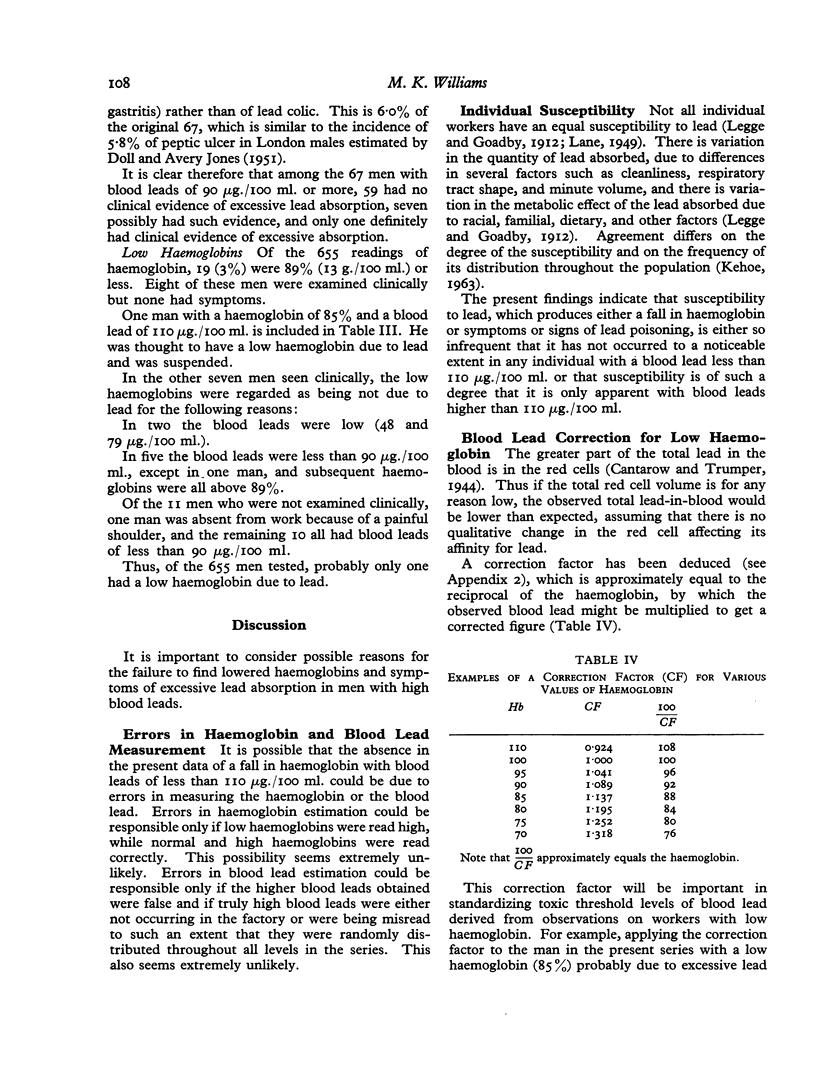
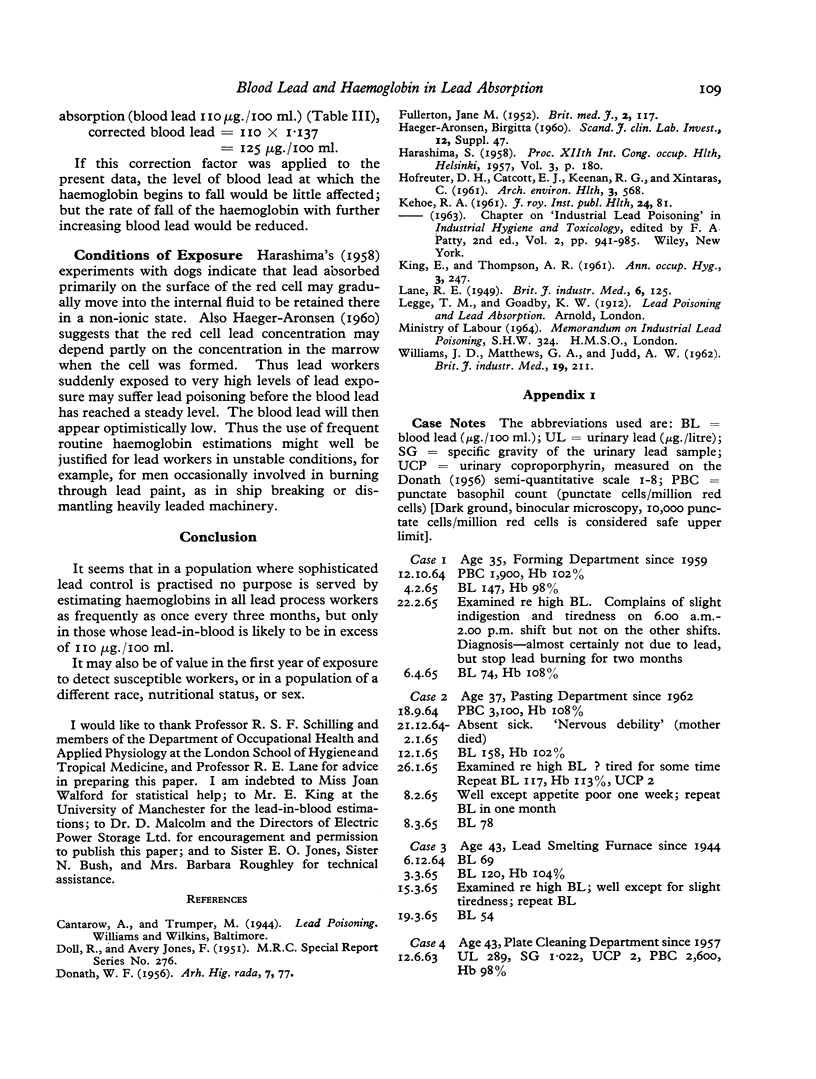
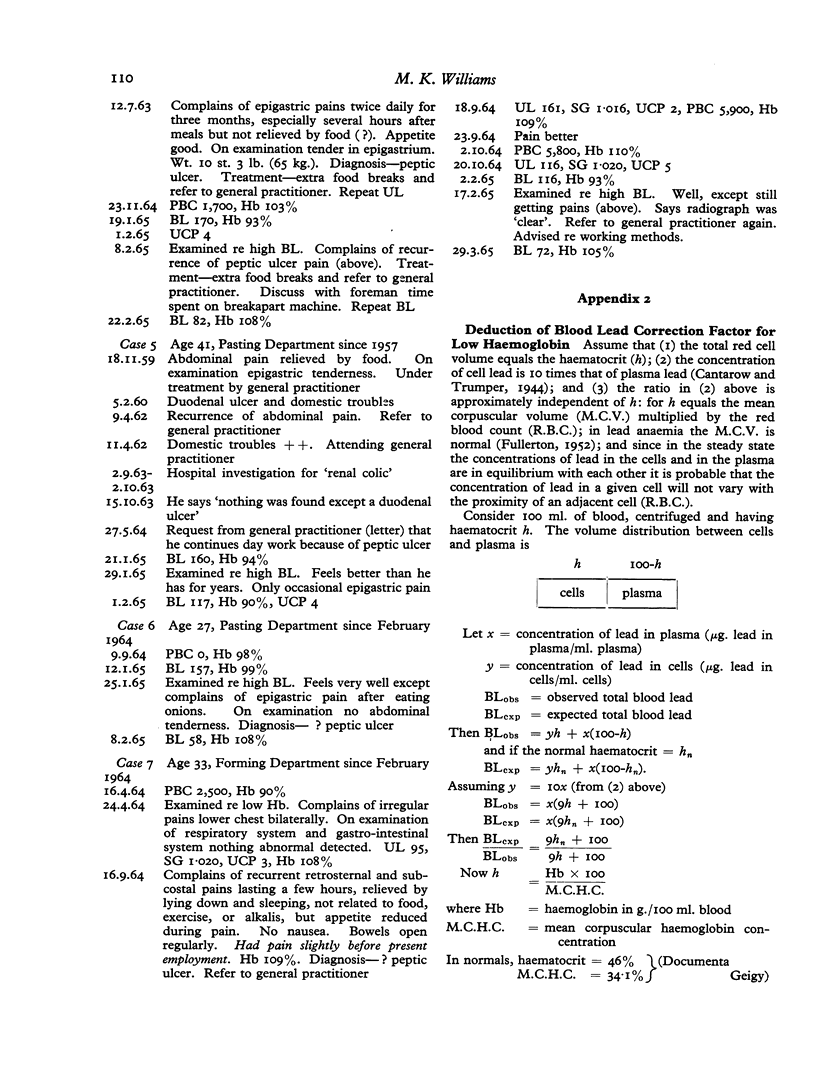
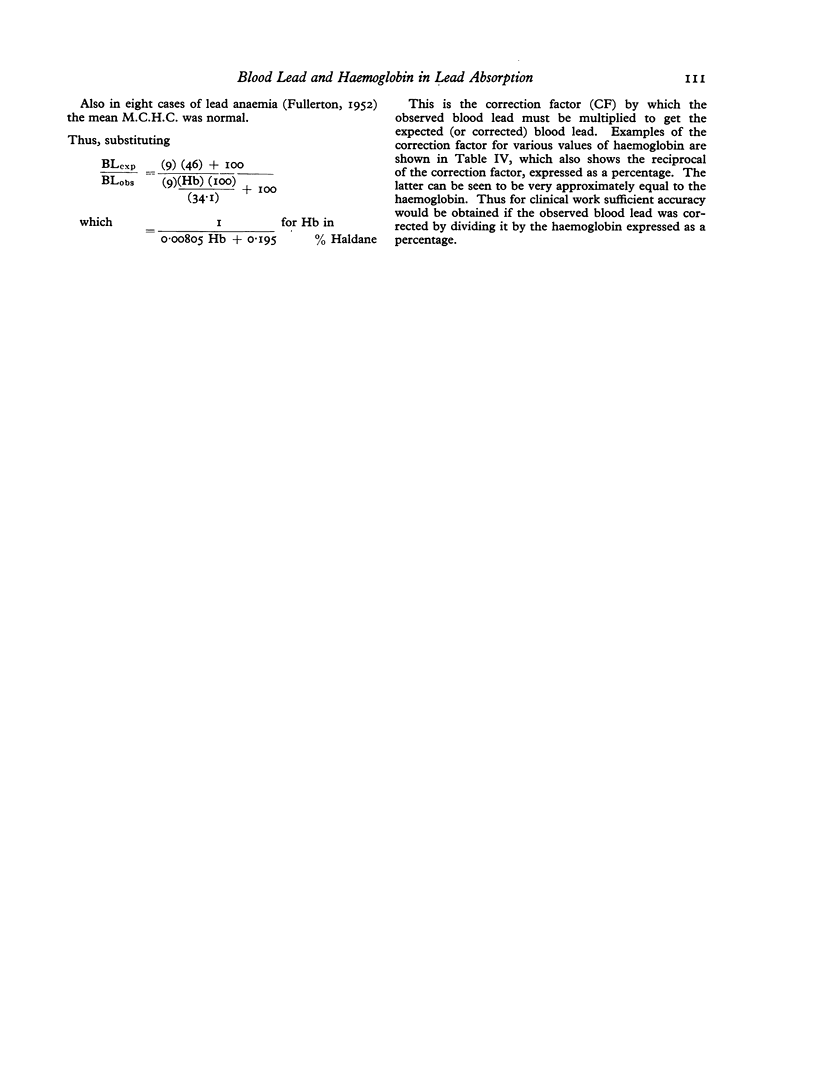
Selected References
These references are in PubMed. This may not be the complete list of references from this article.
- HOFREUTER D. H., CATCOTT E. J., KEENAN R. G., XINTARAS C. The public health significance of atmospheric lead. Arch Environ Health. 1961 Nov;3:568–574. doi: 10.1080/00039896.1961.10663074. [DOI] [PubMed] [Google Scholar]
- KING E., THOMPSON A. R. The measurement of lead absorption in industry. Ann Occup Hyg. 1961 Jun;3:247–263. [PubMed] [Google Scholar]


